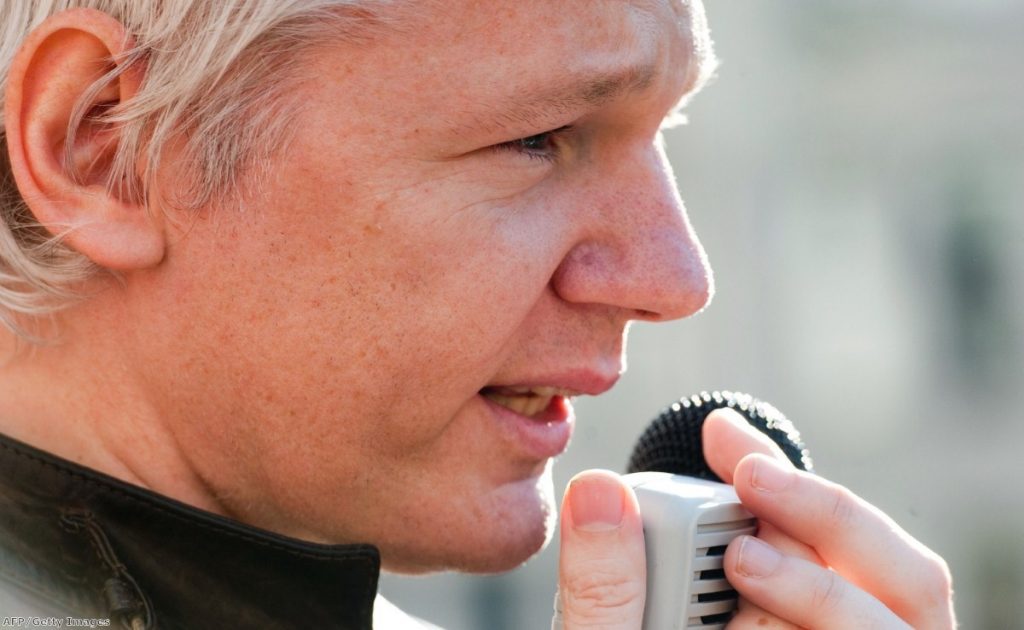UK and Sweden defy Ecuador over Assange extradition
Britain's refusal to grant Julian Assange safe passage out of the UK means the diplomatic standoff over the Wikileaks founder's fate continues.
Foreign secretary William Hague insisted last night that"the fundamentals of the case" had not been altered by Ecuador's announcement that it is prepared to grant asylum yesterday.
Assange remains trapped inside the Ecuadorian embassy in west London. He is protected from arrest by Metropolitan police officers because the building is sovereign Ecuadorian territory – but he cannot leave without permission from an unyielding British government.
"No-one, least of all the government of Ecuador, should be in any doubt that we are determined to carry out our legal obligation to see Mr Assange extradited to Sweden," Hague said in an unmoving statement last night.


"He faces serious charges in a country with the highest standards of law and where his rights are guaranteed. We believe that should be assurance enough for Ecuador and any supporters of Mr Assange."
Those protesting outside the Ecuadorian embassy fear Sweden will relent to US pressure to extradite Assange across the Atlantic. They fear their hero will not receive a fair trial and end up in prison for the rest of his life.
"It is important to understand that this is not about Mr Assange's activities at Wikileaks or the attitude of the United States of America," Hague insisted. "He is wanted in Sweden to answer allegations of serious sexual offences."
Sweden, which has summoned the Ecuadorian ambassador to the ministry to answer Quito's "serious" accusations, offered a stern denial that it would offer anything other than a completely fair trial for the 41-year-old Australian.
A spokesperson said: "It is unacceptable that Ecuador would want to halt the Swedish judicial process and European judicial cooperation."
Foreign minister Carl Bildt added in a tweet that Sweden's "firm legal and constitutional system guarantees the rights of each and everyone".
Yesterday the Foreign Office faced criticism for threatening Ecuador with a raid on its London embassy to extract Assange. Such a move would be possible under an obscure piece of legislation, it pointed out, but experts doubted whether such a move would be acceptable under international law.
Hague explained: "Given our need to fulfil our obligations under international law to deliver a suspect for questioning on serious offences, we have ensured that the Ecuadorian authorities have a complete understanding of the full legal context in this country."
Assange is expected to deliver a statement on Sunday restating his position. He may refer to a secret 'sealed indictment' prepared against him by US officials which Wikileaks allies have already warned about.









